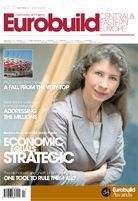Recently my fiancée was driving me through Warsaw's Ursynów district and we passed a placard with the bold words: This is to be the site of a project by Hochtief. The location for this future development is a bucolic green knoll lined with willows. My fiancée noted that it was a shame that such green areas in Warsaw are disappearing. Indeed, there are many such signs littered around the city and many people hold similar sentiments. In Białołęka district, two thirds of Park Wiśniewo is to be redeveloped and turned into a shopping centre. The area is owned by developer Astro. Unsurprisingly, local residents are objecting, pointing out that the park contains many rare plant and bird species, and that there are few such areas in the surrounding local area. I have some sympathy for such residents, and indeed Poland does have a bit of a reputation for concreting over greenery. We all probably remember the row over Dolina Rospudy in 2009 when the government incurred the wrath of the Eu




























































